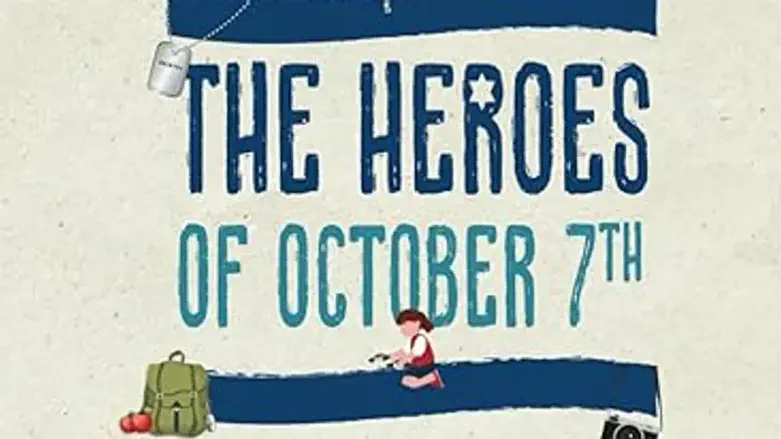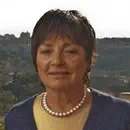
Rochel Sylvetskyis Arutz Sheva English site's serior consultant and Op-ed and Judaism Editor.
Every parent wants to shelter their children and spare them sadness, tragedy and frightening events, if they can. It is hard to have to tell a youngster about the death of a beloved friend or family member, about someone they know who has a serious illness or about an imminent divorce, for example, but it is better for them to hear it from a loving parent than through any other source.
Israel suffered a national trauma and unspeakable tragedy on October 7, 2023, horrors of such magnitude that we adults are still absorbing them, one that also leads to fears, because it was able to happen and because our enemies keep saying that they intend to try to repeat it. There are youngsters who slept in their parents’ room for months after October 7th or showed other signs of trauma, and many, sadly, whose lives (or those of friends) were changed irrevocably by that day and the war that followed it.
If you are a parent, you may not realize that even if you want to spare them, your children already know or will find out about the events of October 7th. We live in a world where we are bombarded by news and where much of it is slanted or serves the presenter's goals. But when reality is such that there is no way to prevent youngsters from hearing about something terrible, a parent, who should be the significant figure passing the information on to his child as he is sensitive to the child’s reaction and can best gauge how to respond, needs to direct the results of hearing that reality elsewhere. The question then becomes how to deal with the masses of available information and through what lens we want young people to look at October 7th and think about it
Hadassah Ben Ari, an Israeli writer and mother of seven, created a book in Hebrew with her own children’s lasting impressions in mind. She deftly - and in my view, brilliantly - changed the focus of the day’s memories from dwelling on Hamas atrocities to lauding the true heroism of so many individual Israeli civilians – young and old, children and teenagers, men and women, emergency first responders, doctors and nurses, residents of the south and those who came rushing south to help - and the incomparable bravery of so many IDF soldiers on that very day and since.
Being exposed to that way of looking at the October 7th story is a form of healing, even for those bereaved on that terrible day. It is also just and logical, because while Hamas barbarians initiated the October 7th massacre and the price we paid is incalculable, still, Israeli courage, initiative and selfless ingenuity prevailed, so why should Hamas dominate the narrative our children hear? We cannot ignore Hamas' evil barbarity, but we can put it in its place in the trash heap of history and focus on honoring those who put it there.
I kept thinking of the hassidic rabbi in the camps who comforted fellow inmates by telling them to thank G-d they are not Nazis, to focus on their being on a different plane - he could not go on to tell them that Jews are fighting back, but we are able to add our thanks to G-d that we can do so.
Hadassah writes: “On October 7th, I took my children to the shelter in my parents’ Jerusalem home. When later, we began hearing about the atrocities, I realized that if we are not the ones who tell the story of this war to our children, they will hear it from voices that hurt them, cause wounds and leave scars. At that moment, I decided to tell the story from the viewpoint of the wonderful heroes with which it is replete.”
The book has now been translated into English and is titled The Heroes of October 7th - Heroic stories for children, published by Yedioth Ahronoth- Chemed Books. And the stories, written in a way that will keep youngsters interested, are wonderful, each in its own way. Each page turned tells the story of another hero or heroine, written by various contributors with the advice of a team of child psychologists, and then attractively illustrated by artist Tehila Bar-Hama’s simple but evocative drawings. The stories lead to pride at the unbelievable spiritual and physical strength that the day’s events revealed about every sector of Israel’s population. I, too, felt my heart swell with pride as I read it, although I already knew many of the stories and not a few participants in them.

And as for children overseas, Hadassah writes: “The antisemitism which has reared its head in unexpected places has served as a call to us to translate these heroic tales into other languages, in order to let Jewish children worldwide know that there is a tiny country in which Jews can always stand proudly, so that these stories may serve as inspiration for them as well.”
The book is suitable for fourth or fifth graders and up. Tali Meir, A child psychologist with whom I consulted, said that parents, who know their child best, must think about whether they are ready for the book. She feels that the book is unquestionably meant for parents as well and that the stories were carefully chosen to suit both young and old. It is not a book of bad things that happened to helpless innocent victims, she says, but a collection of clear, short narratives focused on our heroes, on their good deeds, kind hearts, courage and bravery. What is special, she adds, is that it tells their stories beginning before they became heroes, relaying the important message that we don’t become heroes overnight, that the courage they showed is the result of their being raised on the values of kindness, helping others, and because that is how they lived their lives.
A young person should read these stories in the presence of an adult or together with an adult because although written in a light, positive style, which is easy and welcoming for youngsters to read, not every person whose heroism is described survived to tell us about it. I, personally, do not recommend reading the book in one sitting, although its uncomplicated style makes that seem feasible.
Elior Mor Yossef, MSW, founded an organization that helps children gain self-confidence. He wrote a Hebrew post in which he suggests three stages to guide parents when reading the book so as to get the most out of it: 1. Before reading a story together, the parent should read it and decide if the specific story suits his child. If it seems too upsetting for him, choose another. 2. While reading, sit close together, try to have body contact, give a hug or a caress. Do not add lurid details to the story even if you know of any, keep your eyes on the youngster and stop if you think he has read enough for one sitting. 3. After reading a story, talk to the child about his feelings and validate them, encourage him to ask questions and watch his non-verbal reactions as well. Always end the reading session with reassuring words that strengthen his feeling of security and of being protected. - something parents in Israel have been doing since Simchat Torah 2023.
Whether it is Rachel of Ofakim who kept the terrorists talking over a hot meal, cake and coffee until soldiers arrived, Oz Davidian who saved 120 people travelling back and forth in his small van, Supergran who smiled while being taken hostage and when she was rescued, beloved principal Yossi who wrote from Gaza to his students to speak nicely to one another, Guy who rushed south to save people without his uniform and was almost mistaken for a terrorist until they saw his tzitzit, to name a few, the stories are fascinating, upbeat (yes, even the ones where the hero is killed) and enlightening. (Note: the book is absolutely suitable for observant families. Readers can Google the author.)
Whether your family lives in Israel or anywhere in the world, this book will help your sons and daughters identify with being Jewish, make them proud to be Jewish and have them realize how lucky they are to be part of the Jewish People and that Am Yisrael Chai!
(It is important to note that the profits from the sales of the book will be donated to the Achim le Chaim organization, an NPO which helps IDF wounded soldiers).
